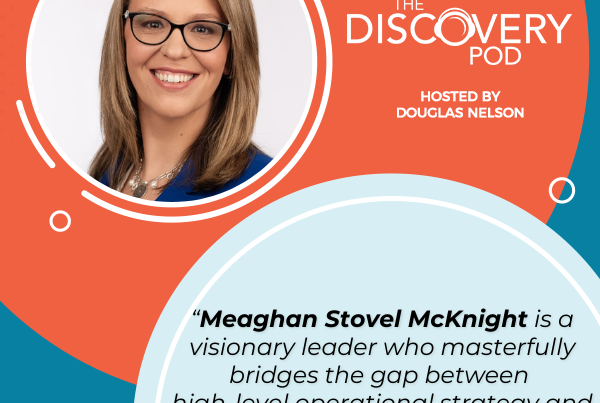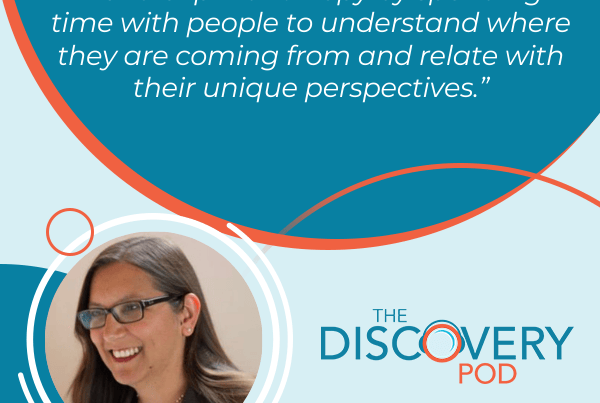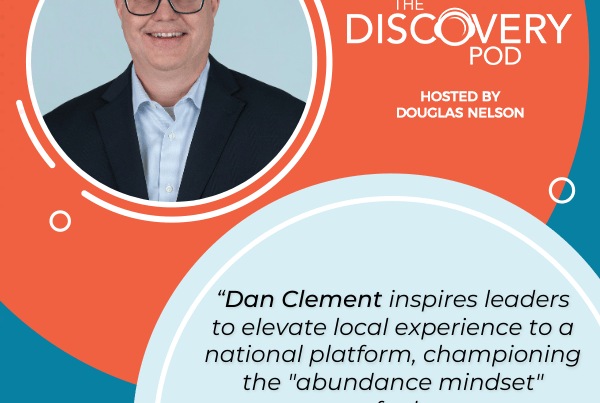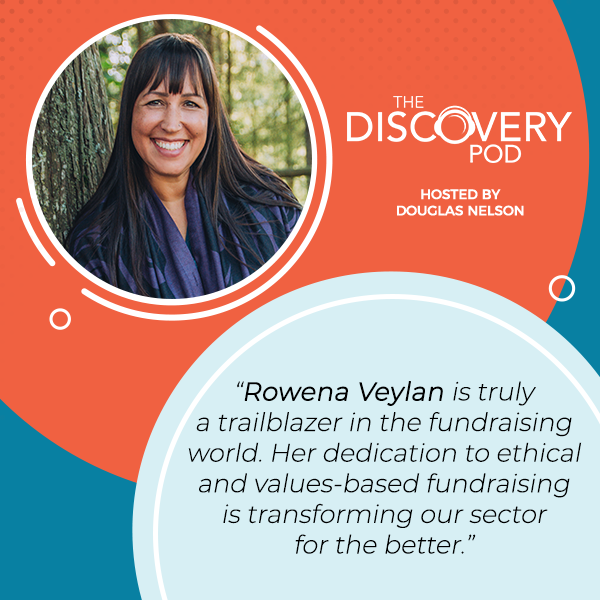
In this episode, Douglas Nelson welcomes Rowena Veylan to discuss the importance of Indigenous Fundraising Protocols and how they shape the future of fundraising in Canada. As the founder of The New School of Fundraising, Rowena shares her journey and the inspiration behind creating a platform that challenges traditional fundraising methods while promoting ethical practices. Tune in to discover how intentionality, continuous learning, and embracing cultural differences can lead to more effective and inclusive fundraising efforts.
—
Listen to the podcast here
The New School Of Fundraising With Rowena Veylan, Founder
Introduction To Rowena Veylan And The New School Of Fundraising
Welcome to the show, Rowena.
I’m happy to be here.
We are delighted to have you here on the Discovery Pod. Our conversation is particularly timely as we approach the National Day of Truth and Reconciliation. First, introduce yourself to our audience and tell us about the New School of Fundraising.
I am a fundraiser in the Lower Mainland. I’m of mixed heritage with Dane-zaa and European roots. My community is West Moberly Lake in Northern BC. Part of my journey is I often say I’m first and foremost a fundraiser, and I also happen to be an Indigenous. For me, it is about learning how to be an Indigenous fundraiser and what that means to me.
I love fundraising so much that two and a half years ago, I decided to open a school called the New School of Fundraising. We take great pride in supporting pretty much anybody who wants to learn more about fundraising, but also questioning a lot of what has traditionally happened or has been taught in the industry. We’re helping people connect to fundraising, and raising money in a values-based authentic way that makes them excited and not feel cringy. That’s what we do.
Fundraising isn't just about asking for money. It's about building relationships and raising funds in a values-based, authentic way. Share on XOne of the key messages of the New School of Fundraising is uncommon education to community crusaders. What does this mean to you? How do you deliver on that as a brand promise?
It’s a fun time right now to have a fundraising school when I feel everything in our industry is being questioned. I learned fundraising twenty years ago at BCIT. I don’t think there really are rules. We’re looking at how we do this ethically and fairly. We’re looking at power imbalances. When you look at our tagline, we like to say we are the school that provides the information that you can’t google. We’re also not teaching neuroscience. It’s not very complicated.
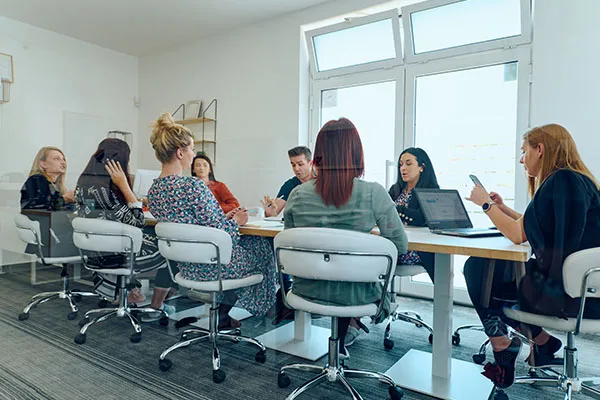
Indigenous Fundraising Protocols: Our industry is being reimagined. We’re questioning power imbalances and striving for more ethical, fair, and inclusive practices.
If you want to say anything, you need consultants. At the end of the day, it’s a lot of common sense. We like to think that we come in between the lines. We bring maybe Google to life. You can google almost anything about our industry and find great webinars, articles, blogs, or podcasts, but then it’s the conversation that brings it to life because every fundraiser or organization has a different experience with that knowledge or they have a different reality with that.
They need time to figure out how that fits for them. Our instructors are good about providing that time and ensuring that we can help lead them to implementation. If we’re not moving the needle for them, we’re not doing our job.
One of our core values at the Discovery Group that we talk about all the time is always be learning. Where are those gray areas where we need to be clearer in our thinking? What are the skills? What are the concepts we need to be spending more time on? Looking through what you offer at the New School of Fundraising, it is a lot of clearing up those gray areas and answering questions for people that I don’t think they can google. I don’t even think AI is going to be all that helpful. I think you’ve found an important role in the sector.
You mentioned so much is changing in our sector so much for the better, which doesn’t make it easy. There is so much positive change happening in our sector. You said, “I love fundraising so much. Two and a half years ago, I left to start a school.” What led you to leave the sector as an active fundraiser and launch the school? What was the moment when you were like, “Today is the day” or “Now is the time?”
Not to go back to probably what you hear a lot, COVID played a big hand. I taught fundraising for a decade at various institutions. When you progress from a fundraising role to more of a leadership role, you end up doing a lot of teaching and coaching when you’re even in-house as a fundraiser. You have a team of younger fundraisers or less seasoned fundraisers that you’re helping to find their confidence, learn the skills, and learn both the art and science.
You have your director of programs, your director of marketing and communication, your board, or your CEO that you are working to build their skillsets and get them all on board. I realized that the most enjoyment I find is seeing others succeed and get excited about it. I do think fundraising has a bit of a bad reputation. I often say it’s like how Jaws gave sharks a bad reputation when not all sharks eat people. People go, “Fundraising? You must ask for money all the time. How could you do that?” That’s not what we do. A lot of the time with the school, we’re reframing that.
When COVID hit, my daughter was six and I was at home with her. People said to me, “Would you ever do a virtual school?” I’m like, “No. Our fundraising industry is all about relationships. Why would I do a virtual school?” The whole world then turned to Zoom, and we all got comfortable with it. Many people were on it for the first time. I thought, “This is it. This is the time to do it,” and I took the plunge.
Were you glad you took the plunge?
I can’t imagine anything else in my life. It is my greatest joy to help and to create communities. I appreciate all the education that’s out there, and we tried to come in alongside it. We tried hard to come in alongside it and offer something unique.
The Importance Of Indigenous Protocols For Fundraisers
One of the courses that you offer is the Indigenous Protocols for Fundraisers. Our podcast producer, Alex Wilson, took it and was raving about it. She said she found it incredibly useful. For those of us who haven’t taken it, tell us a little bit more about what that course is. I think that’s the entryway into the new school.
We are very proud of that. It was one of the first workshops that was developed at the school. Nicole Taylor-Starrett developed it for us in partnership with me and launched it when it was first developed. I’m grateful for her involvement as well. It came out of a very personal experience of myself trying to work within the industry and navigate how to be better and how this world worked with our calls to action and with all of the things.
You saw for-profit companies booking wonderful cultural competency or blanket exercises, and a lot of great very expensive learnings for these companies. Our non-profits don’t have that kind of money usually to book things like that. I was working at Minerva BC at the time, and we were launching a leadership luncheon. We all were sitting around the table. We’re like, “We should have a welcome.” Everybody looks at me.
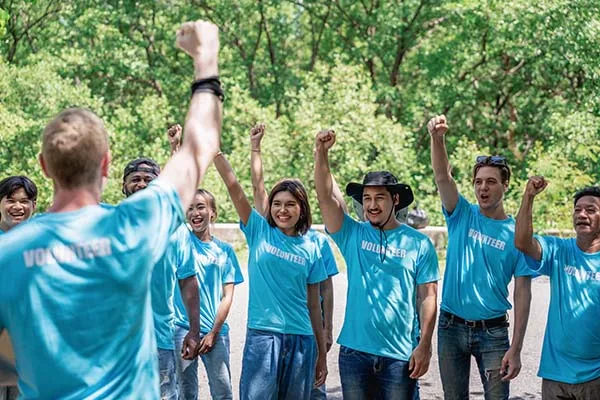
Indigenous Fundraising Protocols: Our nonprofits don’t have the funds for expensive cultural training. That’s why we created our Indigenous Protocols workshop—to fill that gap.
I am maybe not the most Indigenous person. I look very white on the inside. It was grappling with how to find answers or learn more about what we need in the industry to keep up, do better, and have a space to talk. Nicole and I put our heads together. We thought, “Let’s create a workshop and make sure it is not an Indigeneity at all because we have people coming from across Canada.” It is some basic concepts and also the understanding that it is all different.
When people get into the non-profit industry, they’re wonderful, empathetic, and compassionate people. They’re also scared to make a misstep. It provides an opportunity to be in a place where you can ask questions, talk to others, share and learn, and then realize that it’s okay. You just have to go and try. That’s a long spiel, but that’s how the workshop came about. It was from me going through it in the industry as an Indigenous person. and still not knowing for myself how to navigate it.
Balancing The Need For Learning With Fear Of Mistakes
There are so many questions I want to ask right there. How can we encourage people to continue their learning while also holding space for the mistakes they’re going to make along the way? You said people who join our sector, I call it the social profit sector. For better or for worse, they’re our knights for a living. We want to enable people and we want to reflect kindness. How do you balance that with mistakes will be made by people who don’t want to make a mistake in this area? How do you bring them out of that?
To be honest, we’ve had many times over the years where people have burst into tears during that workshop. It was pretty emotional when we were offering it. It depends on what’s happening in the news or what’s happened. It can be raw for people, and they don’t know how to process this. That’s the thing too. We have our personal feelings. We live in this country. We see what’s on the news.
Many people don’t know what to do with this compassion, which turns into bursting out in tears, which is fine. It’s a place to do that. The common narrative in that workshop is that it’s okay to make mistakes, and you will because there’s also no rule book. Even in one nation or one community, you could line up ten people and ask a question, and they’re all going to have their opinion on that. There’s no rule book.
I can share that earlier on in the school, I had an encounter where somebody felt the school wasn’t following protocols. I took that hard, as you can imagine. I called Nicole in tears. She said, “Rowena, we teach this. it’s that person’s protocol or their translation of the protocol. We can just do the best that we can, and we can know who to lean on or who to ask for advice, how to be respectful, how to pay them for their time, and things like that. We know how to do that. As long as we do that, that’s the best we can do.”
When we do make mistakes, it’s important to apologize and then lead with curiosity, which is also what we teach in fundraising. Lead with curiosity and say, “I’m very sorry that that offended you. Could you please help me to understand why? Could you please help me to understand more about this?” and learn.
Curiosity is key. Lead with it. When mistakes happen, apologize and be genuinely curious to learn and improve. Share on XBeing genuine when asking that question is important. There’s a tone you could add to those words that probably wouldn’t get you very far. One of the things you said earlier was the discrepancy between the access that for-profit private companies have to education, training, and experience in understanding Indigenous protocols and working toward reconciliation.
Generating Demand For Indigenous Protocols Training
Those types of things aren’t available or aren’t within reach of the social profit sector. You’re providing something that people who are seeking it can find. I’m curious how you think about generating the demand. Instead of waiting on the people who are seeking it to find you, and I’m sure they find you quite well, how do you generate that, force these questions, or raise these questions in people’s minds that haven’t quite come up yet?
This is always the question of the day. For me, it even goes past indigenous protocols. I know we’ll talk about that. I know I should say “social profit sector.” Thank you. We are an industry and a sector that is heads-down. We are busy and hustling. I spoke a few months ago on a panel after an Uncharitable movie screening. Dan Pallotta was on the panel, which was a wonderful opportunity.
I shared that it’s great to say that donors should view something differently, which is what Uncharitable does. Donors should view it differently. As an industry, if we are not valuing things and putting them in front of donors, that’s of more concern to me. That’s what I’m seeing not happening. We’re not valuing what the for-profit industry is valuing. Not think comparatively to that, but we know that this kind of indigenous protocols training is great, and it’s the way to go forward in the country.
We know that professional development is important. We know that leadership development is important. I was doing an in-person workshop with the United Way of Greater Toronto when I was out East a few months ago. I always like to chat or poke the bear. Not that they’re a bear. They’re actually quite lovely. I said, “Why don’t we ask for team retreats, professional development, leadership development, and all the things that we need?” Somebody said, “Our donors aren’t going to pay for that.”
I said, “Have you asked them?” The case is there. They probably work at companies where they know the value of that. For me and the school, I feel that is more our voice of how can we help the other side of what Uncharitable and Dan Pallotta talk about while helping to be a voice to encourage the industry to value these things. I think there is movement in that.
I think there is movement. I’m nodding my head as you’re describing and walking through that answer because one of my convictions about our sector is that the world outside our sector is changing faster than the world within it. To me, that represents the greatest risk to social profit and the great purposes of so many of the organizations within it. If within our organizations or our sector, we cannot lead the social change that needs to happen in Canada and beyond, we are going to get run over by others making those changes.
Our sector needs to lead the social change that’s happening in Canada. If we don’t, we’ll be left behind by others making those changes. Share on XChallenges Facing Current Leaders In Social Profit Sector
We’re probably not going to like the outcome of those changes. They’re not going to be as equitable. They’re not going to be as just. It’s not going to work as well. Theoretically, philosophically, emotionally, spiritually, and practically, we’re on the back foot if we’re not changing faster. You put a lot of energy into helping organizations speed up in a number of areas. What are the common mistakes you see organizations and leaders make when they’re starting down this journey of looking at equity and inclusion in general?
Our industry is behind. I would agree with you. I spoke to a large educational institution, which I will not name. What they’re encountering is that there is almost the thought that leaders should just know this. This should just be ingrained, or they already have the training to do it. It’s so raw and a loaded conversation that a lot of them don’t want to admit that they don’t know it.
I look at the work of Tanya Rumble and Nicole McVan of Recast Philanthropy. Tanya came on as one of our leaders. We have a five-week leadership development program at the school. She came on as one of our workshop leaders and created a workshop for the school for that leadership cohort, which was wonderful. For me, it’s out there. It’s like we need to have a stronger case. We need to put the case forward.
Maybe it’s going to take a generational change in leadership because I do think the next group is coming up differently. My daughter is only eleven, but when you look at how they’re coming out of school, what they learn, and what’s so normal and regular for them, I have great joy and great faith that things can change. Maybe our older guard can’t. Maybe it’s going to take that next wave of leadership to come into that.
You’re more understanding than I am. I wouldn’t let the current leadership in the sector off the hook that easily, and I know you don’t either. One of the greatest sources of optimism I have about our sector is what the new face of leadership in our sector looks like. The people who are leading organizations today are of different colors, different genders, and different perspectives than it was 10 or 15 years ago.
That is a trend that is accelerating, not decelerating. There is a lot of room for optimism there. Regardless of who you are, if you’re in a leadership position, you have a responsibility to make sure that your organization reflects not just what is current but what is equitable and just because that is fundamental to the work we do in our sector. You cannot opt out of social change.
A word that I come back to again and again is intentional. About two years ago, I was one of the people who looked at AFP Canada’s commitment to truth and reconciliation and provided feedback on that. I was very grateful to be involved in it through the AFP Canada Foundation. After that, I had a conversation with them about how it’s great for us to say we support, but where do we think the indigenous fundraisers are going to come from?
If we’re looking at a non-diverse working group, where are we providing opportunities to be trained in our sector and bringing them into the sector? It is an intentional step. This last year, the school had a pilot program Inspire, a national non-profit. We had 21 indigenous people from across the country enter into training with the school for the first time.
Fifteen finished, and it was fundraising training. It was for people who were not working in the industry but were curious about it. Inspire provided a full scholarship for them to attend. Now we’re in a conversation about what next year looks like. We had a learning year. We need to have spaces like that where people feel comfortable in groups of their own to learn and have that time, That’s the intentionality of it. It can’t just be, “There’s training out there. Why don’t they take that?” It’s not right, or it doesn’t connect culturally with the values of that group.
Whenever you’re saying they, you might want to check your perspective. “Why don’t they do that? That’s a problem over there.” It’s a push for it. The school is relatively new, but for most of us, COVID is so far in the rearview mirror. It feels like it’s been a long time. Have you seen differences in the participants in your programs over the last couple of years? Who is coming? Who is showing up? How is that changing?
We’re two and a half years into our programming, and things have changed a lot. The first fall was just me begging people to come. It was a lot of people that I knew like, “Please come. There are only two people registered.” There was a lot of that, and then it started taking off. I get asked a lot like, “Is it for small organizations, large organizations? Who is this for?”
It depends a little bit on our programming. We have a wonderful storytelling workshop, Empathic & Effective Storytelling with Jen Love. Jen is one of the partners at Agents of Good in Ontario. It doesn’t matter what size organization you’re from. That’s a great workshop. Everybody needs to know more about that and have that time to explore, unpack, and think differently.
If you’re looking at a stewardship workshop with the amazing duo from Fox & Holly, Lee and Janet, they are about how to develop a stewardship plan. That’s for small to midsize organizations, and larger ones as well. Over the years, we’ve seen more small and midsize organizations coming, except for some of our other workshops. Our leadership program had two coordinators, two executive directors, and everyone in between. How wonderful it is that everybody felt welcome in that space. I wouldn’t say change but maybe settle. We can anticipate who’s coming now.
You described the joy of starting up something new very well. The Discovery Group turned eight years old in August. It feels like it’s not as heavy to start new things because we’ve walked that path a few times. In that first year, everything was very heavy.
I know that you felt the same way, Doug. I related it to when we started a new event in the industry. We create an event and think, “This is a good idea.” We book the space, make the invitations, and send them out. We randomly pick a value for the ticket out of the air, and then we wait and hope people want to come. You wait and then somebody buys a ticket. You’re like, “Yes. It wasn’t just me. It is a good idea.”
It wasn’t just you and that one person, but it felt like a lot more. My birthday is the day after Halloween. As a kid, I didn’t want to have a Halloween-themed birthday, and I didn’t until after I was five. It was hard to get people to come to my birthday. Halloween. A lot of revisiting that and starting the group, but we’re mostly past that now.
One of the things you referenced earlier is what is required to stay curious, to stay open, to keep that focus, and to always be learning. I have found, and I think many people in our sector, that the greatest learnings I’ve had come from the mistakes that I’ve made. Sometimes it’s from watching the mistakes of bosses I had early on in my career like, “I don’t want that to happen to me.” What mistakes have you made in your career that turned into real moments of learning and gifts that brought you to where you are now?
That’s a good question. My biggest mistake, I’m trying to think of another word that I would even call it. When you look at fundraisers and you look at their path on LinkedIn, you’d be like, “Rowena bounced around a lot.” I always got a job when I needed it. I got a place where I wanted, but I didn’t stay very long in a position.
We hear that in our industry. We hear like, “Somebody has had many jobs in the last ten years.” For me, it was not taking the time to explore my own values and realize that it was less about job satisfaction as it was I was landing in places that didn’t align with my values. I often talk to fundraisers about, for me personally, it’s like you can be a logical fundraiser and it’s like head fundraising. It could be a heart fundraiser.
The biggest rev for me was going to places where I felt more like a business case than a vignette that would make me cry. It’s not that we’re supposed to make people cry. I know that’s a whole thing, but there’s that heart pull. When I look back at my career, I could have stayed longer in places had I realized what I was looking for. I just didn’t know and didn’t understand the nuances of different organizations from their team structure to their leadership to their cause, and how much I needed it to work for me.
That’s one of the pieces of advice we give to a lot of leaders, which is however you structure this, whatever your plan is, whatever the strategy is, it has to work for you as the leader. If it works for you as a leader, it’s going to allow you to show up as your best self more often, which is going to follow through throughout your team.
One of the challenges in our sector is people do move around. I also think organizations have at least 51% of the responsibility for that, and not being clear on what they’re expecting in their fundraisers, not being clear of the values they want to represent to their donors, and giving unclear messaging to fundraising teams. When organizations tighten it up, it’s amazing how well the fundraisers do. When organizations resist it and don’t know how or don’t pay attention to it, it’s amazing how short the fundraisers stay.
I would agree. I tend to agree more. In my career, it’s not even knowing the right questions to ask to pull out the information, and not being aware of that at all.
One of the things I think you represent not just in your work at the school but also in the role that you play in the sector is being a pathbreaker and a mentor. That’s critical to the success of any leader. What role does mentorship play in your life? Who do you turn to when you need advice after a tough day?
I am so lucky to have so many mentors. The first person that pops into my mind is Jennifer Johnstone, who is well-known in the sector. We sat on an AFP committee together, probably 15 to 18 years ago, with Scott Elliott and Leanne Dennis. There were a bunch of us on that committee. I was probably the most junior at the time. We lost touch over COVID and work. We reconnected about 3 or 4 years ago. She’s helped so much with the school. She’s always a sounding board. Our values align with how we think fundraising should be supported. I’m forever grateful to Jennifer for being only a text or call away and always taking my call.
Jennifer plays that role for a number of people in the sector. We go back to the COVID times, but Jennifer was on the show a few years ago. Most of her episodes were about the role of mentorship and the importance of mentorship in the sector. She embodies that. That’s great. We can both smile at each other and think about Jennifer. Maybe we’ll let her know we talked about her when we get off the show. On September 30th, our country will come together to recognize the National Day of Truth and Reconciliation. What would you encourage all Canadians to do in honor of this important holiday?
That’s a big request. I’ll reframe it if that’s okay. One of the things we talk about in our Indigenous Protocols Workshop is that the most authentic connection to all of this is the one that speaks to you as a person. Some participants say, “I’m a foodie. I want to find out what’s authentic and what traditional foods are in my local nation or indigenous community, whatever the makeup is.” Maybe they will find out more about traditional foods or whatever that could be.
For my family on September 30th, my grandmother spent fifteen years in residential school. She went when she was three and left when she was eighteen. She didn’t leave that school for those fifteen years. She didn’t go back to her community. She didn’t leave. For me, it’s an opportunity for my family to get out into the community and be part of it, to seek out events and opportunities, to be with others and learn, and to have my daughter experience new things.
For us, Orange Shirt Day is not just one day. It’s an opportunity on that day to come together. I love it when you walk into a community gathering. You’re at a park and you walk up over the edge, and you see a sea of orange shirts. It’s so beautiful that so many people come out to that. It’s what do we do that day? What then is our commitment? What options are we taking? How are we going to continue to learn? What are we choosing as a family or as an individual?
There are so many different paths from myself personally, to my family, to my school, and my profession. There are so many different aspects of that. It comes back to that intentionality again. What are we doing to make sure that it doesn’t stop on that day? We always get good registration around June and September for Indigenous Protocols, and then it falls off a little bit. How do we make sure that we are continuing to learn?
I appreciate the personal nature of your answer there, finding that joy, that connection, and that community. It’s a powerful message for all of us not just on September 30th, but on any day. Thank you for that. Rowena, we’re relatively early in our season here, but the way we end our episodes is not going to change. It’s never going to change. I get to ask you my favorite question. Rowena, what are you looking forward to?
As the school kind of ebbs and flows, I look forward to seeing change on the professional side of our industry. I look forward to that. My rose-colored glasses are always going to be on my face. They don’t come off. I think they are permanently attached. I’m forever optimistic that things are going to improve and work out.
We’ll see more giving in Canada, I’m hopeful. I’m looking forward to seeing that. On a personal note, I’m looking forward to probably slowing down a bit, and making sure that I stay grounded. My motto this year is to be present every day and enjoy it, and to stop that clock from going so fast. How is it going so fast? We have to slow it down.
What are you looking forward to? Let’s be present, every day. Slow down and enjoy the moments. Share on XPersonal Reflections On Staying Grounded And Present
What are you looking forward to? I’m looking forward to being present every day. I love it. What a great motto for the year for you. I think that’s good advice for all of our audience. Rowena, thank you for all that you do in our sector. I do believe that many of us share your optimism and hope for it. It is so great to see how effectively and consistently you’ve been working to make that happen. Thank you and thank you for being on the show.
Thanks for having me.

